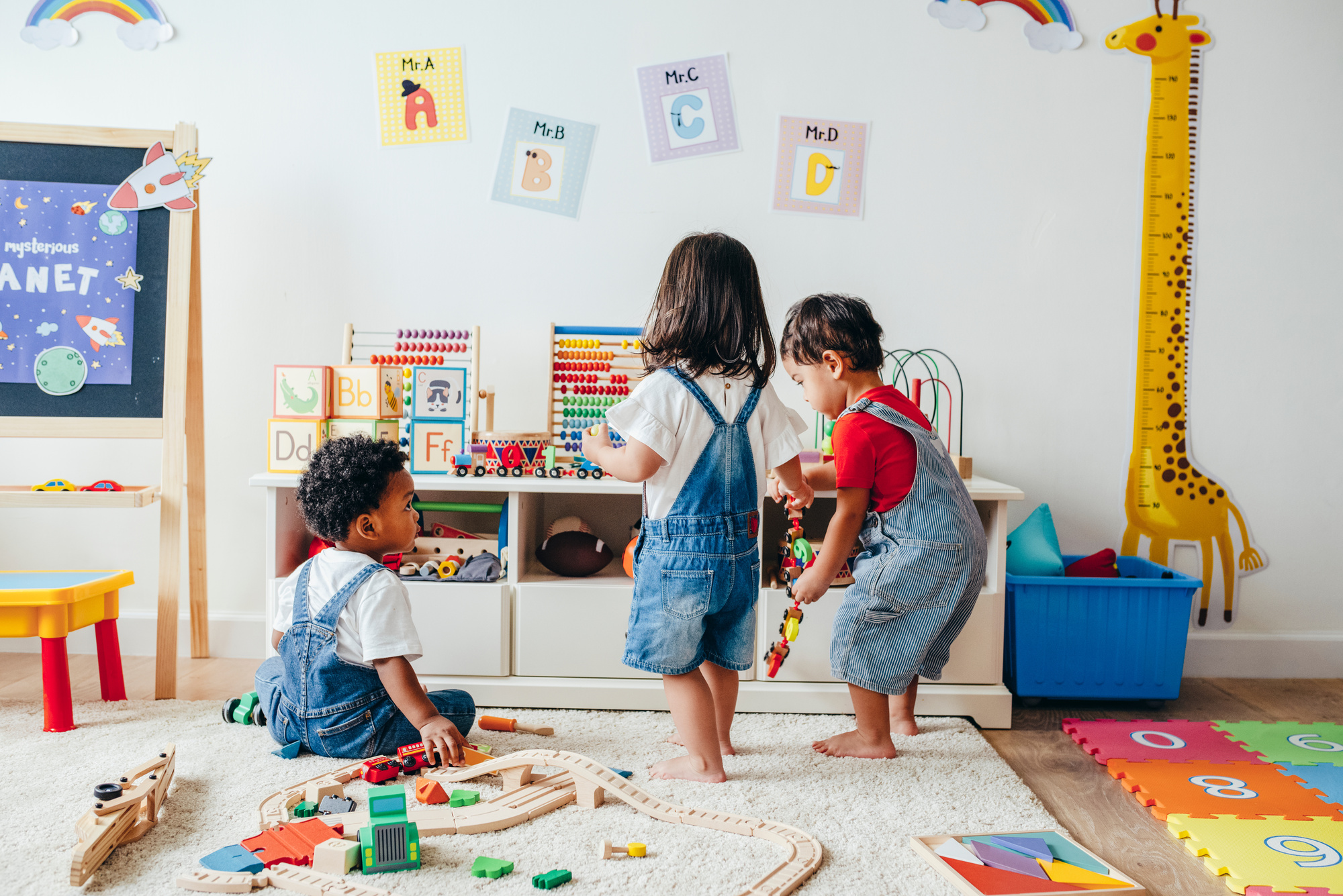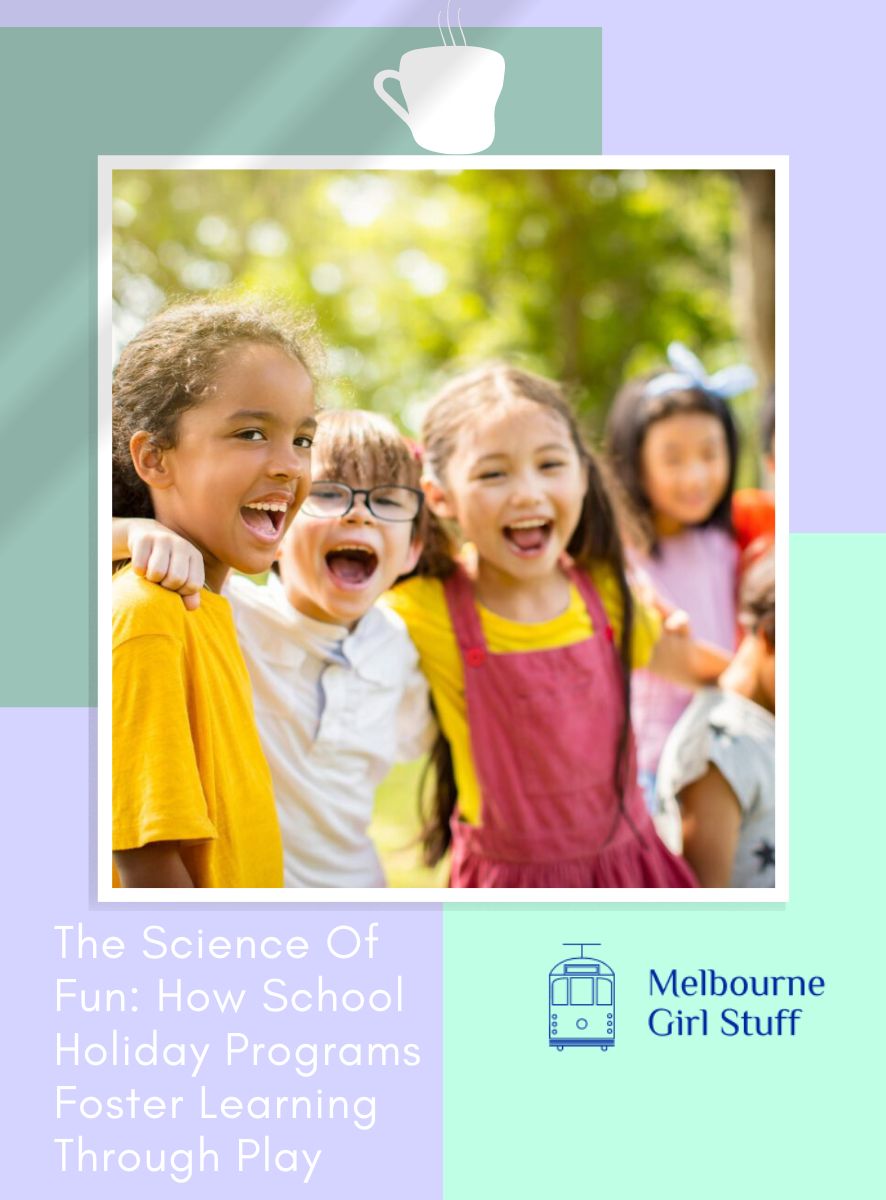When school holidays roll around, kids often eagerly anticipate a pause from their usual schedules. The festive season is a time for celebration, relaxation, and quality time with loved ones. But just because school is out doesn’t mean learning must stop. This is where holiday programs come into play.
What are School Holiday Programs?
Holiday programs are specially designed activities and events for children during school term breaks. They’re offered at community centres, museums, and schools. These programs provide various enjoyable activities and experiences with educational value. School holiday programs keep kids busy during term breaks and allow working parents to continue working during term breaks.
If you’re a parent, educator, or simply interested in the role of play in learning, this article is for you. It explores the scientific benefits of play-based learning for children’s development. Get started!
1. School Holiday Programs offer Hands-On Experiences
Imagine your child learning about electricity in a hands-on science experiment. They eagerly assemble circuits, testing hypotheses and discovering the magic of conducting electricity. This playful exploration helps them understand complex scientific concepts.
School holiday programs across Australia and other continents offer activities that enrich children’s learning. By actively manipulating materials, kids strengthen their cognitive and motor skills. They develop problem-solving abilities and critical thinking and gain a deeper understanding of concepts. These hands-on experiences spark curiosity, promote experimentation, and foster a love for learning.
2. School Holiday Programs Foster Learning in a Fun Environment
Learning doesn’t have to be confined to classrooms! In holiday programs, education takes a different form. This engaging learning environment immerses children in interactive games, role-playing, and creative projects.
Picture this: your child plays a historical figure in a reenactment activity. They engage in dialogue and experience the period firsthand. In this playful setting, children absorb knowledge effortlessly and retain information more effectively.
3. School Holiday Programs Provide Social Interaction During Term Breaks
The power of play extends beyond individual growth and nurtures social skills. Holiday programs offer kids opportunities for social interaction, allowing them to grow together.
Children learn to negotiate with their peers during group activities and team challenges. They develop empathy, understanding, and respect for others. Through play, they learn to work in a team, solve conflicts, and value diverse perspectives.
For instance, a group treasure hunt teaches kids to share ideas, assign tasks, and listen to others. They practice teamwork and problem-solving while experiencing the joy of shared accomplishments.
4. Nurturing Independence
Holiday programs allow kids to learn independently and take charge. In a supervised environment, they’re encouraged to make choices, set goals, and take responsibility. Play-based learning helps kids develop agency and self-direction.
For instance, in an art workshop, children can express their creativity and make artistic decisions. They choose colours, experiment with different techniques, and proudly showcase their creations. This sense of ownership fosters self-confidence and nurtures independence.
5. Increased Self-Esteem
Building self-esteem is vital for children’s overall well-being and success. Holiday programs feature play-based learning that helps kids build self-esteem and confidence.
Visualise this scenario: your child participates in a dramatic performance. They take on a character and deliver lines with enthusiasm and conviction. The applause after their performance boosts their self-esteem and encourages them to keep practising.
In playful settings, children feel accomplished when they overcome trials and receive positive feedback from peers and mentors. This process boosts self-esteem, resilience, and child potential.
6. Enhanced Creativity and Imagination
Holiday programs foster creativity, which is essential to human development. Children use their imaginations to solve problems and express their ideas through play.
Envision a project where children design and construct their inventions. In this open-ended activity, they exercise their imagination, problem-solving skills, and resourcefulness. They learn to think outside the box, embrace failure as part of the learning process, and develop a boundless mindset.
Play-based learning encourages children to experiment, take risks, and use their imagination. By exploring their creativity, kids develop valuable academic and personal skills.
7. Cultural Awareness
In today’s interconnected world, fostering cultural awareness and appreciation is crucial. Holiday programs can teach kids about other cultures, traditions, and perspectives.
Imagine children exploring a specific culture’s art, music, and cuisine. They learn about that culture’s customs, values, and history through playful activities. This immersive experience fosters empathy, respect, and a deeper understanding of diverse communities.
By promoting cultural awareness, holiday programs empower children to become respectful global citizens who celebrate diversity.
8. School Holiday Programs Can Keep Kids Fit During Term Breaks
Play improves children’s physical, cognitive, and social-emotional development. Holiday programs that include active play help kids develop gross motor skills, strength, coordination, and fitness.
Consider a sports day where kids compete in friendly games, play team sports, and improve their athleticism. These activities build the children’s balance, endurance, and sportsmanship.
Holiday programs that emphasise play-based learning encourage healthy living and an active lifestyle.
9. Reduced Holiday Learning Loss
Finally, holiday programs can prevent ‘holiday learning loss’ or ‘summer slide’ during long school breaks. With their stimulating environment, these programs prevent academic regression.
Play-based learning activities that reinforce essential skills help kids prepare for the next school year and assessment tests.

How to Choose the Right Holiday Program
With countless holiday programs available, choosing the best one for your child can be challenging. Here are some tips to help you make an informed decision:
-
Research and Explore
Take the time to research different holiday programs in your area. Look for programs that align with your child’s interests, learning goals, and age group. Check out previous participants’ reviews to gauge the program’s reputation.
-
Consider the Program Philosophy
Look for programs that prioritise play-based learning and incorporate hands-on activities. Balanced structured and unstructured play gives kids guided learning and independent exploration.
-
Check the Qualifications of the Program Facilitators
Ensure the program has child development and education-savvy facilitators. They should foster safe and supportive play-based learning.
-
Assess the Variety of Activities Offered
Look for programs with a variety of activities for different interests and talents. This will allow your child to explore new areas and discover new passions.
-
Consider the Program’s Schedule and Duration
Check the program’s schedule and length to ensure it fits your family’s schedule. Consider whether you want a full-day or half-day program and whether you want it for a few days or the whole holiday.
-
Visit the Facility
Take the time to visit the program’s facility prior to enrolling your child. Assess the cleanliness, safety measures, and available resources. Ask program coordinators about the program’s activities, values, and learning styles.
-
Involve your Child in the Decision-Making Process
Consider your child’s interests and preferences when making decisions. Talk to them about program options and listen to their input.
The right holiday program can give your child an enriching educational experience. Consider following these tips to decide what fits your child’s needs and interests.
Unleashing the Power of Play
Holiday programs that use play-based learning strategies help kids learn, grow, and thrive. These programs provide immeasurable benefits through hands-on experiences, horizon expansion, independence, and creativity. They foster improved development, instil a love for learning and combat holiday learning loss.
So, this holiday season, embrace the power of play and give your child the gift of discovery, growth, and joyful learning.

